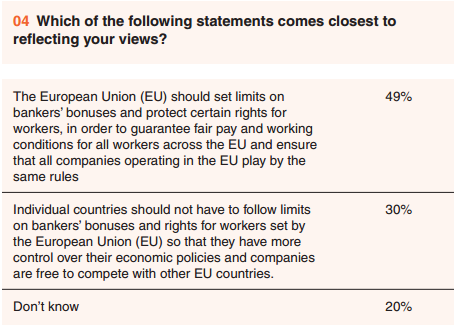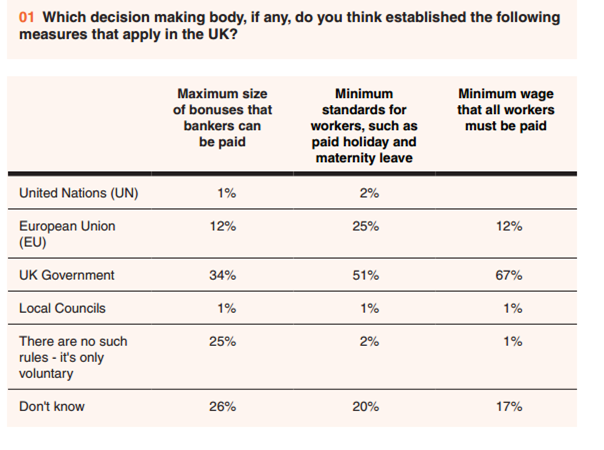The campaign for the UK to remain in the EU must appeal to those immune to the overtures of big business – HPC Deputy Director Luke Hildyard writes for Policy Network
It is worryingly easy to characterise the case for Britain’s membership of the EU as a negative campaign, dominated by the big business establishment. Business groups such as the CBI and the EEF have been the foremost advocates of Britain’s role in the EU and the most trenchant critics of a referendum on membership.
Their reasoning tends to focus on the loss in terms of jobs and trade and the fact that the Swiss or Norwegian models of engagement with the EU could never apply to the UK. Why a vote to leave would be bad or would not work, in other words, rather than a positive, inspiring argument for to remain.
These are all fair arguments, of course, and business is entitled to have a voice in the debate. Businesses employ plenty of people and carry out a number of critical services, so anything that enables them to operate more effectively is often good for the country as a whole. It is also true that we need to properly debate the costs and implications of turning our backs on the world’s biggest single market. Therefore, it is right that warnings about the impact on jobs and economic growth are heard in the run-up to the vote.
Clearly, such warnings can also achieve their intended effect. Interventions from the business community were clearly important factors in this year’s general election result and the referendum on Scottish independence in 2014.
It is important to note, however, that there are occasions when the interests of business and society come into conflict – lower wages and reduced rights for workers or less stringent environmental protections can reduce costs for businesses, for example, but perhaps make life worse for the wider public.
As such, many voters will be naturally (rightly!) suspicious of a campaign dominated by business leaders. It creates the risk of a perception that the benefits of EU membership are captured solely by big business and the super-rich. It will surely be the intention of the leave campaign to depict the referendum as a struggle pitching fat-cat executives and the political establishment for ‘remain’ against a popular insurrectionary movement for ‘leave.’ Thus, in presentational terms, a campaign focusing on the benefits to business would play into their hands.
Equally, an overly business-focused campaign will also weaken the substantive case for EU membership. Business leaders are likely to concentrate on the aspects of the EU that they like best – chiefly, access to the biggest single market in the world – and neglect other benefits, such as the common standards on workers’ rights agreed with EU partners, including the right to paid holiday, paid maternity leave and maximum working week of 48 hours.
If these benefits of membership are not articulated – and the fact that they are already being blindly dismissed as red tape or Brussels bureaucracy, to be negotiated away before we even get to the referendum, gives little grounds to hope they will be – it will be harder for ‘remain’ to win.
Obviously, workers’ rights are incredibly popular. And there is a reason why they need to apply at EU level. Outside the EU, countries are incentivised to compete with our European neighbours to attract businesses and investment by cutting rights, wages or environmental protections in a race to the bottom. Within Europe, by contrast, we can agree common standards that ensure fair and dignified working conditions for everyone. The position of Eurosceptic lobby groups underline this point – the Fresh Start group of Conservative MPs have attacked the ‘working time directive’ while Business for Britain demand the removal of EU ‘social and employment’ regulations, effectively threatening workers’ rights to paid holiday and a lunch break.
Recent polling for the High Pay Centre suggests that people understand and appreciate this:

However, while they support the idea of common rights across Europe, they are less aware that such rights already exist. The same polling found that only 25 per cent of respondents realised that key rights at work such as paid holiday and maternity leave are guaranteed by the EU. 51 per cent wrongly assumed they were introduced by the UK government, rather than the EU.
 The polling suggests that the role of the EU in preventing a race to the bottom on workers’ rights (and potentially in other areas, such as tax or environmental protection) could be decisive in the referendum.
The polling suggests that the role of the EU in preventing a race to the bottom on workers’ rights (and potentially in other areas, such as tax or environmental protection) could be decisive in the referendum.
Not only is it one more compelling reason to remain in the EU, it represents a positive, progressive, internationalist case for doing so – one that can inspire those people who remain immune to the overtures of big business. While business leaders’ interventions in the Scottish referendum and warnings of the dire consequences of independence proved effective, it was also surely the case that they helped define a rather unloveable no campaign against something much more ambitious and optimistic. With analysis suggesting that ‘leave’ supporters are more likely to vote, ‘remain’ needs to inspire people to the polling stations, not just frighten them. Social democrats – whether in the media, political parties, NGOs, unions or elsewhere – have an argument that would enjoy considerable public support. They need to get out there and make it heard.
This article initially appeared on the Policy Network blog